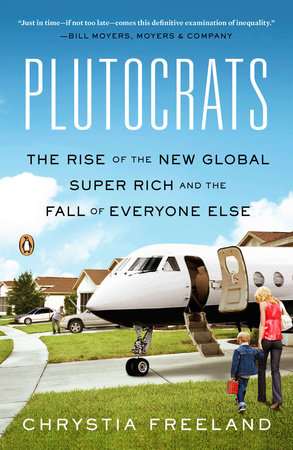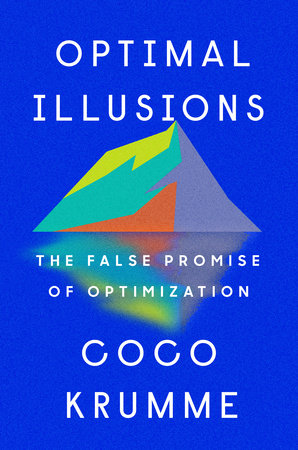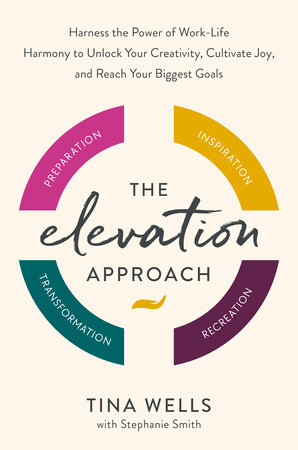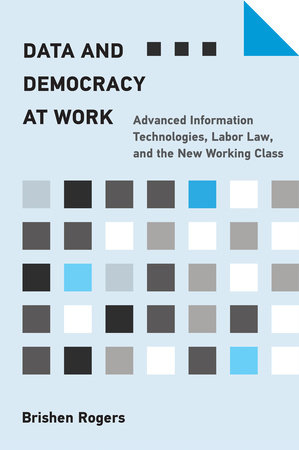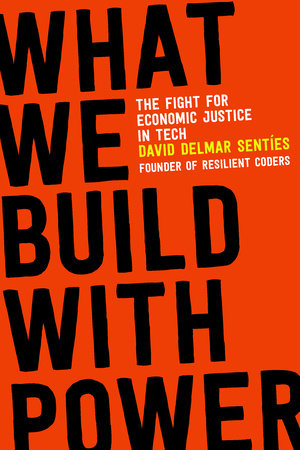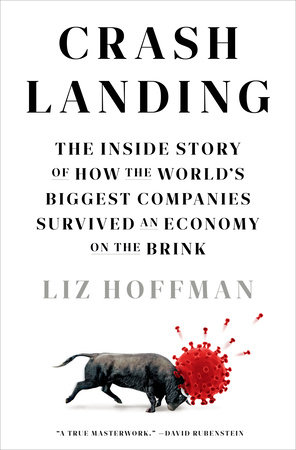Quick Summary
One Sentence Summary
“Plutocrats” by Chrystia Freeland unveils the complex world of the ultra-wealthy and the rising global income inequality.
Big Idea
The book delves into the lives and influences of the super-rich, analyzing how their growing power and wealth are reshaping the global economy and society.
Five Key Ideas
- Global Elite: The emergence of a global elite class that transcends national boundaries.
- Technology & Globalization: How technology and globalization have facilitated the rise of immense wealth.
- Inequality Impacts: The socio-political consequences of growing income inequality.
- Wealth Accumulation: The methods and strategies used by the ultra-wealthy to accumulate and maintain their wealth.
- Policy & Society: The implications for policy and societal structures in the face of growing plutocracy.
Actionable Advice
Foster awareness of how economic policies and global trends contribute to wealth disparity, and advocate for measures that ensure equitable growth.
About the Author
Chrystia Freeland is a Canadian writer, journalist, and politician, known for her insightful analysis of economic and political issues.
Read Next
For further insights into economic inequality, consider reading “Capital in the Twenty-First Century” by Thomas Piketty, or explore “The Price of Inequality” by Joseph E. Stiglitz for a deeper understanding of the societal impacts of income disparity. For a focus on the influence of the wealthy elite, “The Billionaire Raj” by James Crabtree offers an intriguing perspective.
In Depth
The Emergence of a Global Elite
The concept of a global elite is central to Freeland’s exploration in “Plutocrats”. She paints a vivid picture of a class that transcends national borders, bound not by geography but by staggering wealth and influence.
Technology and Globalization as Catalysts
The dawn of the digital age and globalization acts as a catalyst for this phenomenon. Freeland argues that these forces have created a unique landscape. One where talents and ideas can yield immense wealth, rapidly and often without geographic constraints. This landscape is fertile ground for a new breed of ultra-wealthy, often self-made, individuals.
Connectivity and Homogenization
This elite class is highly connected. Freeland describes how technology has enabled a new level of interaction and networking, fostering a sense of community and shared identity among the wealthy, regardless of their home countries.
Power and Influence Beyond Borders
Their power transcends traditional political and economic boundaries. Freeland highlights how this global elite wields influence not just within their own nations, but on an international stage. They shape economies, influence policies, and drive trends worldwide.
Detailed Example: Davos and the Super-Elite
Freeland vividly illustrates this with the example of the World Economic Forum in Davos. This annual event is more than just a meeting; it’s a physical manifestation of this global elite. Here, billionaires, world leaders, and influential thinkers converge. It’s a melting pot of power and influence, where decisions made can ripple across the globe.
Quote from the Book
“In an age of globalization, you don’t actually have to be an industrialist to have industrial-scale wealth.”
This quote encapsulates the essence of the global elite. It highlights the shift from traditional industrial wealth to a new form, one shaped by technology and global connectedness.
Conclusion
In summary, Freeland’s exploration of the global elite in “Plutocrats” sheds light on a transformative shift. It’s a shift that challenges traditional notions of wealth and power, creating a new, interconnected, and influential class that operates on a global scale.
Technology & Globalization: Catalysts for Wealth
Technology and globalization are twin engines powering the wealth of the ultra-rich. Freeland delves into how these forces have reshaped the economic landscape.
The Digital Revolution
The digital revolution has democratized opportunities. Innovators and entrepreneurs can achieve immense wealth rapidly. Think of tech giants and startup moguls. Their fortunes stem from digital breakthroughs.
Global Reach
Globalization extends market reach. A product or idea can swiftly gain global traction. Wealth is not just local anymore; it’s global.
Disruption and Wealth Creation
Technology disrupts traditional industries, paving new paths to riches. Old barriers fall, and those who adapt and innovate race ahead.
Detailed Example: Silicon Valley Entrepreneurs
Freeland highlights Silicon Valley. Here, tech entrepreneurs amass fortunes by transforming how we live and work. Their wealth isn’t inherited; it’s created through innovation and global reach.
Quote from the Book
“The rise of the new plutocracy is inextricably connected to two phenomena: the revolution in information technology and the liberalization of global trade.”
This quote underscores technology and globalization’s role in wealth creation. They are not just trends; they are powerful forces molding a new economic reality.
Conclusion
Technology and globalization are more than just background noise; they are active players in the narrative of modern wealth creation. They redefine paths to riches and reshape the global economic fabric.
Inequality Impacts: Societal Consequences
Freeland doesn’t just spotlight wealth; she probes its societal ripple effects. Rising inequality isn’t a mere statistic; it shapes lives and communities.
Wealth Gap Widens
The rich get richer, the poor stagnate. This growing chasm isn’t just financial. It creates parallel worlds with divergent experiences and opportunities.
Democracy Under Strain
Wealth concentration challenges democratic ideals. When money speaks louder than votes, the essence of democracy wavers.
Social Unrest and Division
Inequality breeds discontent. As gaps widen, social cohesion frays. People feel left behind, fueling anger and division.
Detailed Example: The 2008 Financial Crisis
Freeland zeroes in on the 2008 crisis. It’s a stark example of inequality’s dangers. The rich bounced back quickly, buoyed by their wealth. The average person struggled, often facing job loss and home foreclosure. The crisis wasn’t just economic; it was a glaring display of inequality.
Quote from the Book
“The extraordinary wealth of the financial elite is the most stark and socially perilous consequence of the Great Divergence.”
This quote captures the essence of inequality’s impact. It’s not just about numbers; it’s about societal stability and fairness.
Conclusion
Inequality’s impacts go beyond bank balances. They touch the core of societal well-being and democratic integrity. Understanding these consequences is crucial for grasping the full picture of modern wealth disparities.
Wealth Accumulation: Strategies of the Ultra-Wealthy
Freeland dissects the mechanics behind the immense fortunes. It’s a world where strategy, opportunity, and sometimes ruthlessness intermingle.
Leveraging Technology and Globalization
The ultra-wealthy ride the waves of technology and globalization. They harness these forces, turning them into tools for wealth creation.
Innovative Business Models
They often break molds, creating or investing in business models that redefine markets. Think tech startups or groundbreaking services.
Financial Acumen
Financial savvy is key. They navigate markets, investments, and economic trends with precision. Wealth isn’t just made; it’s managed and multiplied.
Political Influence
Freeland doesn’t shy away from the political aspect. Wealth often translates into influence, shaping policies that can protect or expand fortunes.
Detailed Example: Hedge Fund Managers
Take hedge fund managers, for instance. Freeland illustrates how they epitomize wealth accumulation. They leverage financial knowledge, take calculated risks, and often benefit from economic policies favorable to their interests.
Quote from the Book
“Their wealth, in large part, is a result of their ability to take advantage of their political and economic environment.”
This quote encapsulates the multi-faceted nature of wealth accumulation. It’s not just about making money; it’s about understanding and navigating the broader context.
Conclusion
Understanding wealth accumulation among the ultra-rich requires a multi-dimensional view. It’s a blend of innovation, financial acumen, and an ability to capitalize on the political and economic landscape.
Policy & Society: Implications of Growing Plutocracy
Freeland delves into the intricate dance between the ultra-wealthy, public policy, and societal structures. It’s a complex interplay with far-reaching implications.
Influence on Policy
The ultra-rich don’t just accumulate wealth; they often shape the rules of the game. Their influence on policy can tilt the scales in their favor.
Taxation and Regulation
Taxation and regulatory policies are battlegrounds. Freeland explores how the wealthy navigate these, sometimes bending them to their advantage.
Social Responsibility and Philanthropy
She also touches on philanthropy. It’s a double-edged sword: commendable, yet sometimes a lever for influence and reputation management.
Wealth and Social Cohesion
Wealth concentration can strain social cohesion. Freeland probes how this disparity affects the fabric of communities and societies.
Detailed Example: Lobbying in Washington
A poignant example is the influence of wealthy individuals and corporations in Washington, D.C. Lobbying efforts often lead to policies that favor the wealthy, perpetuating the cycle of wealth concentration.
Quote from the Book
“The super-rich have the ability to shape the global economy, but they have little direct responsibility to the rest of us.”
This quote captures the crux of the issue. Influence without accountability can lead to policies that serve a few at the expense of the many.
Conclusion
The relationship between wealth, policy, and society is intricate and impactful. It’s a dynamic that shapes economies and lives, necessitating a careful examination of its mechanisms and consequences.
Actionable Advice
- Stay Informed: Keep abreast of economic trends and policies. Understand how they impact wealth distribution.
- Advocate for Fairness: Support policies promoting economic equality. Tax reforms and fair wages are key areas.
- Educate Others: Share insights about wealth disparity and its effects. Awareness is the first step toward change.
- Support Responsible Businesses: Patronize companies that practice ethical wealth distribution and social responsibility.
- Vote Wisely: Exercise your voting rights. Choose leaders committed to addressing income inequality.
- Engage in Dialogue: Participate in discussions about wealth distribution. Open dialogues can lead to collective solutions.
- Promote Transparency: Advocate for transparency in governmental and corporate dealings. It helps curb undue influence by the ultra-wealthy.
- Foster Community Initiatives: Get involved in community programs that aim to bridge economic gaps.
- Practice Responsible Investing: If you invest, consider the social impact of your investments. Support enterprises that contribute positively to society.
- Nurture Financial Literacy: Educate yourself and others about financial management. It’s a step toward reducing wealth gaps.
About the Author
Chrystia Freeland is a Canadian author, journalist, and politician. Born on August 2, 1968, in Peace River, Alberta, she has made significant contributions to financial journalism. Freeland studied at Harvard University and the University of Oxford, where she honed her skills in history and Slavonic studies. Her career in journalism includes roles at the Financial Times, The Globe and Mail, and Reuters. Her work often focuses on global economics, income inequality, and the power of the super-rich, subjects she explores with depth and insight in her writing. As a politician, Freeland has served in various roles within the Canadian government, including Minister of Foreign Affairs and Deputy Prime Minister. She is known for her liberal views, advocating for economic equality, progressive trade policies, and women’s rights. Freeland’s unique blend of journalism and political experience shapes her perspectives, making her voice distinct in discussions about wealth, power, and policy. Her book “Plutocrats: The Rise of the New Global Super-Rich and the Fall of Everyone Else” is a testament to her deep understanding of economic dynamics and their societal impacts.
Read These Next
You might like these similar books
- “Capital in the Twenty-First Century” by Thomas Piketty
- “The Price of Inequality” by Joseph E. Stiglitz
- “Winner-Take-All Politics” by Jacob S. Hacker and Paul Pierson
- “Saving Capitalism: For the Many, Not the Few” by Robert B. Reich
- “The Great Leveler: Violence and the History of Inequality from the Stone Age to the Twenty-First Century” by Walter Scheidel
FAQ
Q: What is the main theme of “Plutocrats” by Chrystia Freeland?
A: The book explores the rise of the new global super-rich and the economic and social implications of increasing wealth inequality.
Q: Does the book offer solutions to the wealth gap?
A: While it primarily focuses on analyzing the issue, it does discuss potential approaches to address wealth disparities.
Q: Is “Plutocrats” suitable for readers without an economics background?
A: Yes, it’s written in an accessible style, making it suitable for a broad audience, including those without an economics background.
Q: How does Freeland support her arguments in the book?
A: She uses a mix of real-life examples, interviews with billionaires, and economic data to support her analysis.
Q: Does the book discuss the impact of technology on wealth?
A: Yes, the book delves into how technology and globalization have been instrumental in the creation of modern wealth.
Q: Is “Plutocrats” biased against the wealthy?
A: Freeland offers a critical yet balanced view, providing insights into the lives of the super-rich while analyzing the broader impacts of wealth concentration.

